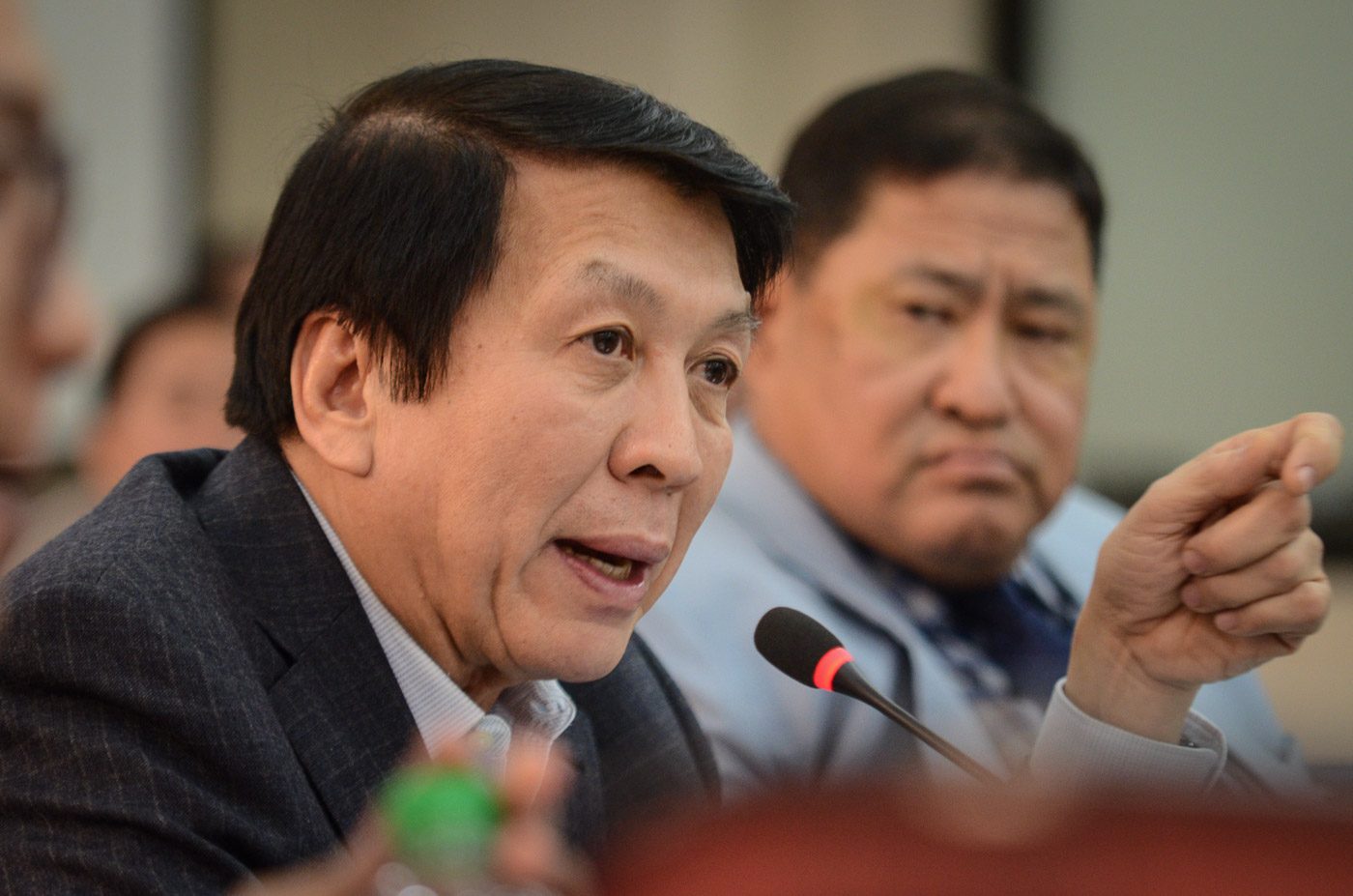SUMMARY
This is AI generated summarization, which may have errors. For context, always refer to the full article.

MANILA, Philippines – Don’t lecture the legislature on what they can legislate.
Majority Floor Leader and Ilocos Norte 1st District Representative Rodolfo Fariñas on Wednesday, October 4, scolded Chief Superintendent Joel Crisostomo Garcia, chief of the Philippine National Police (PNP)’s Police Security and Protection Group (PSPG), over their position paper on the proposed Philippine Legislative Police (PLP).
Garcia had read aloud the unit’s position paper during the House committee on public order and safety’s hearing into House Bill Number 6208, which seeks to create a police force that reports directly to the Philippine Congress.
Fariñas, who authored the bill, explained that this would ensure that the legislative branch remains independent from the executive when it needs to enforce its contempt orders and warrants. The proposed PLP would also serve as a the primary security force of Congress and its members.
After Garcia and other resource persons – from the National Police Commission (Napolcom) and the Philippine Public Safety College (PPSC), among others – reported Fariñas raised his “strong opposition to the position of the PNP.”
“You are lecturing us on what we can legislate on… you didn’t even say, ‘with due respect,’” said Fariñas, commenting on the position paper.
In the paper, the PSPG raised concerns over possible “duplication” of the PNP and the proposed PLP.
But it was the tone of the paper which apprently miffed Fariñas, who questioned why Garcia was lecturing the committee on the separation of powers “without even citing jurisprudence.”
“You could have always said it in more diplomatic terms,” said Fariñas.
Garcia clarified that the position paper was only that of the PSPG.
It has yet to go through the PNP’s Legal Service, Directorate for Plans, and the Office of the PNP chief. He immediately apologized to Fariñas and the rest of the committee.
Committee chairman Antipolo City 2nd District Representative Romeo Acop, himself a former cop, quipped that he had earlier warned Garcia about their position paper. “I told them not to argue over the law here,” he said.
The tension didn’t last long though, after Fariñas accepted Garcia’s apology. The two exchanged pleasantries after the hearing and even exchanged contact details.
Garcia said that the PNP has yet to craft an offiical stand on the proposed PLP.
Republic Act 6975 mandates the establishment of a “highly efficient and competent police force that is national in scope and civilian in character.”
Long process
The Napolcom and the PPSC, meanwhile, said they were in favor of the measure. The Napolcom pointed out that this would lessen the workload of the PSPG, the police unit specifically tasked to provide security for politicians and other VIPs.
Garcia explained that politicians are only entitled to a maximum of two PSPG personnel, based on President Rodrigo Duterte’s orders. If they want more police as security, they must first get the approval of Duterte himself. Politicians may also tap the local police force for their security team – but they can only retain local cops for a maximum of a month.
Fariñas, who is on his last allowable consecutive term as district representative, said he was pushing for the creation of the PLP to benefit future legislators. “I want members of Congress to have their own protection group,” he said.
Aside from providing security, the proposed PLP would be responsible for serving contempt orders and warrants from Congress. Fariñas cited the example of Ilocos Norte Governor Imee Marcos, whom a House panel threatened with arrest if she continued to skip a legislative probe. Fariñas, himself a former Ilocos Norte governor, pointed out that since the provincial police directors also report to governors, they might be hesistant to serve the warrants.
The PNP belongs to the Interior Department. It is administratively controlled and operationally supervised by the Napolcom. The Napolcom, in turn, deputizes its power to local chief executives, meaning governors and mayors have the “power to direct, superintend, oversee and inspect the police units and forces” in their areas.
HB 6208 has a long way to go before turning into a law. A technical working group, headed by Pangasinan 2nd District Representative Leopoldo Bataoil, will have to flesh out the details of the proposed measure. Bataoil also happens to be a retired policeman.
A police force directly under the legislature may sound unique in the Philippines but in other countries, it has been in place for a long time.
In the United States, for example, some federal police forces report to the legislative branches of government.– Rappler.com
Add a comment
How does this make you feel?
There are no comments yet. Add your comment to start the conversation.